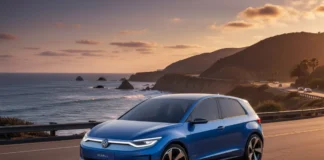The commissioning of locally manufactured electric vehicles (EVs) in Nasarawa, Nigeria, represents a transformative milestone in the nation’s journey toward sustainable transportation. On June 26, 2025, President Bola Ahmed Tinubu officially launched a range of indigenous electric vehicles, including tricycles and motorcycles, in a vibrant ceremony in Lafia, the capital of Nasarawa State. This initiative, spearheaded by the Electric Motor Vehicle Company (EMVC) in collaboration with the Nasarawa State government, aligns with Nigeria’s broader vision for eco-friendly mobility and reduced reliance on fossil fuels. CommaFast explores how this groundbreaking event signals a bold step forward for Nigeria’s transport sector and why it matters for the United Kingdom’s audience interested in global technology and green innovation.
A Leap Toward Sustainable Transportation
The launch of electric vehicles in Nasarawa is a pivotal moment for Nigeria’s transportation landscape. With the global push for net-zero emissions, Nigeria is embracing electric mobility to address environmental challenges and promote economic growth. The event showcased a variety of locally produced EVs, from sleek sedans to rugged SUVs and practical tricycles, all designed to meet the needs of Nigeria’s diverse population. These vehicles, developed by EMVC, one of Nigeria’s leading electric vehicle manufacturers, highlight the country’s growing expertise in green technology.
Governor Abdullahi Sule, a key advocate for this initiative, emphasized the state’s commitment to sustainable innovation. By integrating electric vehicles into Nasarawa’s transport system, the government aims to ease mobility challenges, reduce carbon emissions, and create economic opportunities for residents. The commissioning also included the launch of the state’s first electric vehicle charging station, a critical infrastructure milestone that supports the adoption of EVs across the region.
Why This Matters for the UK Audience
For UK readers, Nigeria’s foray into electric vehicles offers valuable insights into the global expansion of sustainable transport. The UK, a leader in EV adoption with ambitious targets to phase out petrol and diesel vehicles by 2030, can draw parallels with Nigeria’s efforts to build a green economy. The Nasarawa initiative underscores the universal appeal of electric mobility, particularly in emerging markets where innovative solutions can address both environmental and economic challenges. UK businesses and investors may find opportunities to collaborate with Nigerian innovators, sharing expertise in battery technology, charging infrastructure, and sustainable manufacturing.
Moreover, Nigeria’s focus on local production aligns with the UK’s emphasis on supply chain resilience. By leveraging Nasarawa’s abundant lithium deposits—a critical component in EV batteries—Nigeria is positioning itself as a potential hub for green technology in Africa. This development could inspire UK companies to explore partnerships in lithium mining and processing, fostering cross-continental innovation.
The Role of Local Innovation
At the heart of this initiative is the Electric Motor Vehicle Company (EMVC), led by CEO Prince Mustapha Audu. During the commissioning, Audu highlighted the advantages of locally made EVs, which are tailored to Nigeria’s unique road conditions and climate challenges. Unlike traditional vehicles with over 25,000 components, these electric vehicles feature fewer than 300 parts, most of which are cosmetic. This simplicity reduces maintenance costs and enhances durability, making EVs an attractive option for Nigerian consumers.
EMVC’s vehicles include SUVs capable of traveling 1,200 km per charge and sedans designed for ride-hailing services with a 400 km range. Affordable tricycles and motorcycles, known locally as “Igwe,” cater to rural and urban commuters alike. Audu also emphasized the company’s commitment to training local technicians to support EV maintenance, ensuring long-term sustainability and job creation.

Economic and Environmental Benefits
The shift to electric vehicles in Nasarawa offers a dual promise of economic empowerment and environmental stewardship. By reducing dependence on fossil fuels, these EVs contribute to lower carbon emissions, aligning with global climate goals. The charging cost of ₦5,000 per watt eliminates the need for expensive diesel or petrol, offering significant savings for consumers. Additionally, the use of solar-powered charging stations, as planned by EMVC, further enhances the eco-friendly credentials of this initiative.
Economically, the project is a game-changer. The partnership between the Nasarawa State government and EMVC is expected to create jobs in manufacturing, maintenance, and infrastructure development. Governor Sule’s vision to distribute EVs across the state will improve access to transportation, particularly in rural areas, boosting trade and connectivity. For the UK, this model of localized production and sustainable development could serve as a blueprint for supporting green initiatives in other emerging markets.
Infrastructure and Future Plans
The commissioning event also highlighted Nasarawa’s investment in supporting infrastructure. The launch of the first electric vehicle charging station in Lafia marks the beginning of a broader plan to establish a network of charging points across the state. EMVC plans to start with five stations and scale up as demand grows, ensuring that EV users have reliable access to power. The integration of solar power into these stations reflects a forward-thinking approach to energy independence, reducing reliance on traditional electricity grids.
Looking ahead, Nasarawa aims to become a hub for electric vehicle production, leveraging its rich lithium deposits. The state’s collaboration with Chinese companies, such as Avatar New Energy Materials Company Limited, for lithium processing further strengthens its position in the global EV supply chain. These developments could attract international attention, including from UK firms specializing in battery technology and renewable energy.
Table: Key Features of Nasarawa’s Electric Vehicles
| Vehicle Type | Range per Charge | Target Use | Key Features |
|---|---|---|---|
| SUV | 1,200 km | Long-distance travel | Durable design, low maintenance, high range |
| Sedan | 400 km | Ride-hailing services | Affordable, efficient, suited for urban use |
| Tricycle (Igwe) | Variable | Rural and urban commuting | Cost-effective, built for Nigerian roads |
| Motorcycle | Variable | Short-distance commuting | Lightweight, eco-friendly, low operating cost |
Challenges and Solutions
While the launch of electric vehicles in Nasarawa is a significant achievement, challenges remain. Poor road conditions and extreme weather could impact EV performance, but EMVC has designed its vehicles with these factors in mind. The company’s focus on local production ensures that parts are readily available, reducing downtime for repairs. Additionally, the training of local technicians addresses the skills gap, ensuring that maintenance services are accessible and efficient.
Power supply reliability is another concern, given Nigeria’s inconsistent electricity grid. EMVC’s plan to integrate solar-powered charging stations is a proactive solution, leveraging Nasarawa’s abundant sunlight to provide clean energy. These efforts demonstrate a commitment to overcoming logistical hurdles and ensuring the long-term success of electric mobility in the region.
A Vision for the Future
The commissioning of electric vehicles in Nasarawa is more than a local achievement; it’s a signal of Nigeria’s ambition to lead in sustainable transportation. President Tinubu’s Renewed Hope Agenda, which prioritizes clean energy and innovation, is coming to life through initiatives like this. By fostering partnerships between government, private companies like EMVC, and international stakeholders, Nigeria is laying the groundwork for a greener, more connected future.
For the UK audience, this development highlights the global momentum behind electric vehicles and the potential for collaboration in emerging markets. As Nigeria taps into its lithium resources and builds a robust EV ecosystem, opportunities for knowledge exchange and investment will grow. Nasarawa’s journey could inspire similar initiatives worldwide, proving that sustainable transport is not just a vision but a practical reality.





